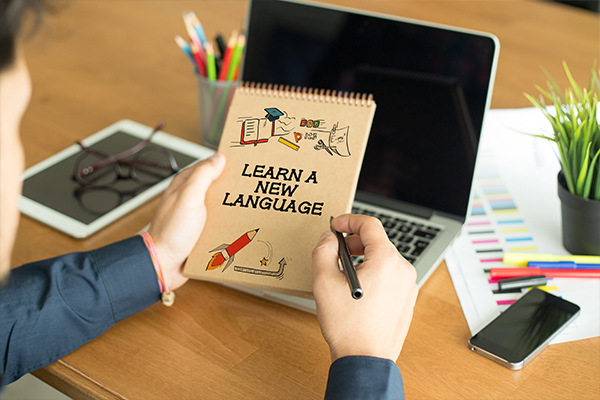In this article:
Life’s struggles would be so much easier if you could face them when you are calm. Unfortunately, when you encounter challenges, your mind usually reacts by doing the opposite.

Your survival instinct, your stress response, the impacts of trauma, and the ways you have learned to interact with others all bring out aspects of your mind that can be intense, overwhelming, and confusing. You cannot remove these challenging experiences; in fact, life would be incredibly boring if you did!
But you can learn how to bring your mind back from these stressed states so that you can experience calmness as a consistent part of your reality. This allows you to move through difficult moments rather than being buried beneath them.
The Importance of Nurturing Hobbies
It is easy to think of hobbies as “extras” – things you do in your spare time once you accomplish all the other essential tasks on your to-do list.
However, engaging in hobbies has the power to strengthen some very crucial and underused muscles in your mind and, therefore, can change the way you see yourself and how you interact with the world around you.
If you don’t actively practice these mental skills, your mind will often resort to searching for a calm state in other less helpful ways.
Things such as alcohol and drug abuse, fighting with friends or family, overworking, eating disorders, depression, and anxiety are all unhealthy coping mechanisms for your mind to seek a state of calm when you don’t have the proper tools to find peace within yourself.
Engaging in hobbies can prevent these outcomes from occurring by empowering you to access your whole mind, so that calmness becomes a choice you can access any time, regardless of the struggles you face.
Hobbies That Can Help You Stay Sane Through Life’s Struggles
There are some simple tools and strategies you can use to help your mind tap into this calm state. The good news is that these tools can be practiced very easily by doing things that bring you joy.
1. Walking

Walking is an incredibly soothing activity for the mind. Moving the body in a steady rhythm has a similar effect as rocking a baby’s cradle.
The steady pulse calms you with the reminder that no matter what is going on in your world, you are still breathing, your heart is still beating, and the rhythm of your life is still moving forward.
In addition, walking gets you outside and this naturally helps your perspective grow larger. This means that whatever issue you have been worrying about or fretting over doesn’t seem quite so overwhelming, because you are able to zoom out and see it more in context.
Finally, exercise changes the hormone balance in the body, which regulates mood, (1) so walking naturally brings more capacity for a sense of peace and calm.
2. Drawing and painting
Creativity helps the mind expand. When you draw or paint, you access a part of your mind that can see possibility and potential. When you feel “stuck” in life, this is usually because you can’t see the way through your current predicament.
To solve the problems and challenges that present themselves, you have to be able to continually think outside the box and see things from new and novel angles.
When practicing art therapy, the mind builds up the capacity to be able to use this skill in all other areas of life, bringing a greater state of calm and confidence to all daily challenges. (2)
3. Dancing
Many unhelpful mental patterns that disrupt inner peace are simply the result of habit. You think negatively about yourself and the world because your mind is used to following those mental pathways.
When dancing, the body is moving freely and fluidly, which forces the mind out of its restrictive habitual patterns, and the possibility of new thoughts is formed, much placing a dam in a river – the water no longer has to follow the same path but is challenged to find new and different directions.
4. Woodworking, crafting, and puzzles
The act of building something is a reminder of the innate ability to take seemingly disconnected pieces and put them together to make something greater than the sum of its parts. This brings with it a sense of confidence that has a very calming impact on the mind.
One of the most stressful experiences in life is the feeling that things are out of your control, and there is no order to the chaos that you feel within or around you. The act of building gives your mind practice at finding a vision for the future.
Thus, when you are under stress, the act of creating something from scratch helps you see that you can always find a pathway forward to a place of more cohesion and reassurance.
5. Learning a new language

Languages tap into the flexibility within your own mind, which is a vital skill in transitioning from a state of stress and confusion to a state of calm.
When you learn a new language, your mind is practicing interpretation – looking at one object or topic and searching for multiple ways of expressing or explaining it.
This means that in other areas of your life, your mind will naturally also look for alternative interpretations, and therefore you can step outside of the narrow perspective that is causing you stress.
For example, if you love running, but you injure a leg and can no longer run, the skills of interpretation and flexibility allow you to look at the situation from a different angle.
You can then see the opportunity that is presented for you to learn a new form of exercise that requires different muscles (such as swimming) and can introduce new and delightful experiences to your life.
6. Reading
Reading allows your mind to play. You are exposed to a new world or new concepts, and you can step into a new way of seeing or experiencing life.
This creates a sense of wonder, which brings out your natural innocence. This innocence means that you can look at the world with fresh eyes and be excited and hopeful about your environment, even when it is uneventful or challenging.
Reading encourages your mind to find the story, the adventure, and the mystery in your everyday experiences. As a result, you are less likely to dwell on the heartaches, distractions, and sorrows that can dominate your thoughts.
7. Photography and videography
When you take photos or videos, you are challenged to really look at what you are capturing on camera or film. You prime your mind to look for beauty, and you practice the skill of asking yourself questions such as:
- What do I like?
- What fits together?
- What is missing?
These questions enlighten you about what you like, what fits, and what is missing in your own life. This increased clarity helps you make more empowered choices to create a life that you enjoy and let go of things that cause grief and stress.
8. Meditation and yoga
Mindfulness practices such as meditation and yoga are specifically designed to tap into the parts of the mind that are calm, by challenging you to put all of your attention on one point of focus. (3)
By doing this, you are giving your mind space to let go of the hang-ups and worries that bring you out of contact with your own innate inner peace.
The more you practice intentionally placing your focus on your breath or an intention (such as love, peace, or growth), the more your mind learns that even when under extreme stress, you can always come back to this basic calming state of mind.
9. Cooking
One major impediment that gets in the way of a calm mental state is your survival instinct. The part of the mind that is primed to look for danger often consumes your perspective. This means that you become trapped in a state of panic, causing you to rush, become irritable, or feel overwhelmed easily.
When you cook, you are nourishing yourself, which soothes this primal instinct of survival by reminding you that you are at a very basic level, looked after, and cared for.
10. Writing and journaling

Writing helps you notice the nature and quality of your own thoughts. By putting what you think, feel, and imagine on paper, you are getting to know yourself better.
It helps you understand why you do the things you do and how your different choices impact you. These insights into your own mind give you more power to operate your life better.
In addition, you are valuing and honoring your own experience by writing it down, which means that you start to doubt your own perceptions less. This means you will spend less energy, wondering if there is something wrong with you for feeling sad or lost and more energy on taking actions that help you feel peaceful and grounded.
Final Word
The human mind is miraculous, wildly capable, and highly intelligent. If you nurture the true breadth of its skill set, you can use your mind to bring you to greater and greater heights of worldly accomplishment, joy, and engagement with life by tapping into the deep state of calm that is accessible to all people.
It matters less what specific hobby you choose and more that you choose a hobby that you personally enjoy. So take a moment to ask yourself: “What can I do to help my mind expand and play?” And then watch how much richness your downtime can bring into your life, relationships, and overall sense of direction and purpose.
- Was this article helpful?
- YES, THANKS!NOT REALLY


